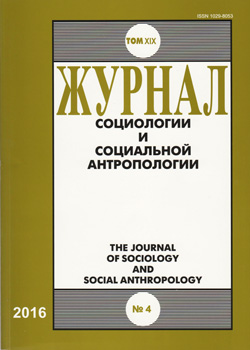Using the Specific Affect Coding System (SPAFF) in Focus Group Research
Keywords:
focus group research, nonverbal information, The specific affect coding system (SPAFF), moderator, quantitative assessment, focus group success, group dynamics, affects
Abstract
The impact of the trend of interdisciplinarity in modern science leads researchers to search for new solutions of methodological problems and expand the arsenal of available techniques. In the present paper the authors propose a new approach to use an authentic psychological technique The Specific Affect Coding System (SPAFF), based on a holistic analysis of human behavior (both verbal and non-verbal), during the focus group research. The SPAFF focuses on 18 affects (negative, positive and neutral); their ratio allows assessing the orientation of the communication under study. Thus, on the basis of the SPAFF it becomes possible not only to diagnose the overall success of the focus group or a certain stage of it, but to assess the readiness of moderators for carrying out focus groups. The authors develop a focus groups success index, which changes from -1 (rather unsuccessful) to 1 (rather successful).
Published
2016-08-20
How to Cite
Puzanova, Z., & Larina. (2016). Using the Specific Affect Coding System (SPAFF) in Focus Group Research . ZHURNAL SOTSIOLOGII I SOTSIALNOY ANTROPOLOGII (The Journal of Sociology and Social Anthropology), 19(4), 84–102. Retrieved from http://jourssa.ru/jourssa/article/view/547
Section
Methods

